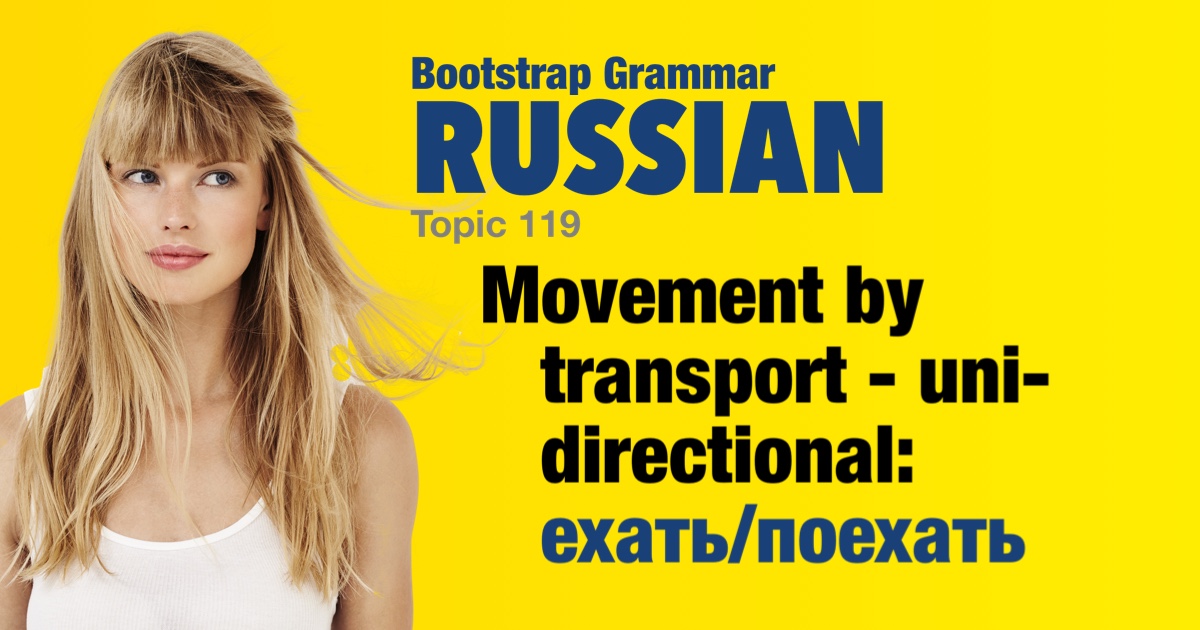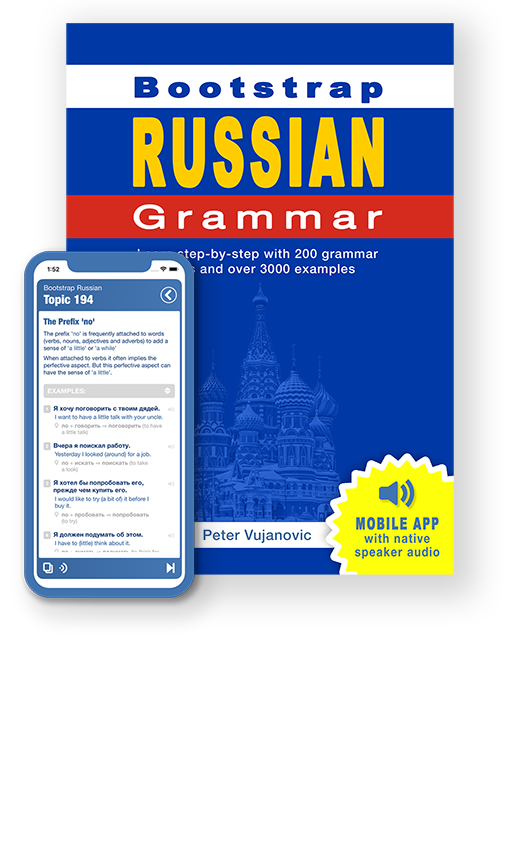Russian grammar - Movement by transport - uni-directional: ехать/поехать |
|||
|
|||
Like verbs dealing with movement by foot, there are verbs for movement by transport or 'to travel'. The uni-directional pair is ехать (imperfective) and поехать (perfective). The present tense conjugation of ехать is: • я еду, ты едешь, он/она/оно едет, мы едем, вы едете, они едут And the past tenses for the pair are: • ехать : ехал, ехала, ехало, ехали For the conjugations and past tense forms of поехать just prefix those of ехать with «по-». |
| Examples: | |
|
Сейчас я еду на работу.
Now I'm going to work.
|
|
|
Сегодня утром я поехала на работу.
This morning I (female) went to work.
|
|
|
Было темно, когда я ехал в театр.
It was dark when I (male) was going to the theatre
|
|
|
Почему вы поехали сегодня в школу на поезде?
Why did you (female) take the train to school today?
|
|
|
Мы поехали сюда на машине, потому что так было быстрее.
We went here by car because it was faster.
|
|
|
Маргарита поехала на фабрику одна.
Margarita went to the factory alone.
|
|
|
Вчера они ехали в трамвае и увидели Елену.
Yesterday they were riding a tram and saw Elena.
|
|
|
Сегодня первый раз мой сын поехал в школу на автобусе.
Today my son travelled to school for the first time on the bus.
|
|
|
Откуда вы поехали?
From where did you (formal) travel?
|
|
|
Они долго ехали по шоссе.
They were driving/travelling along the highway for a long time.
|
|
 |
|


 (imperfective, unidirectional)
(imperfective, unidirectional) 